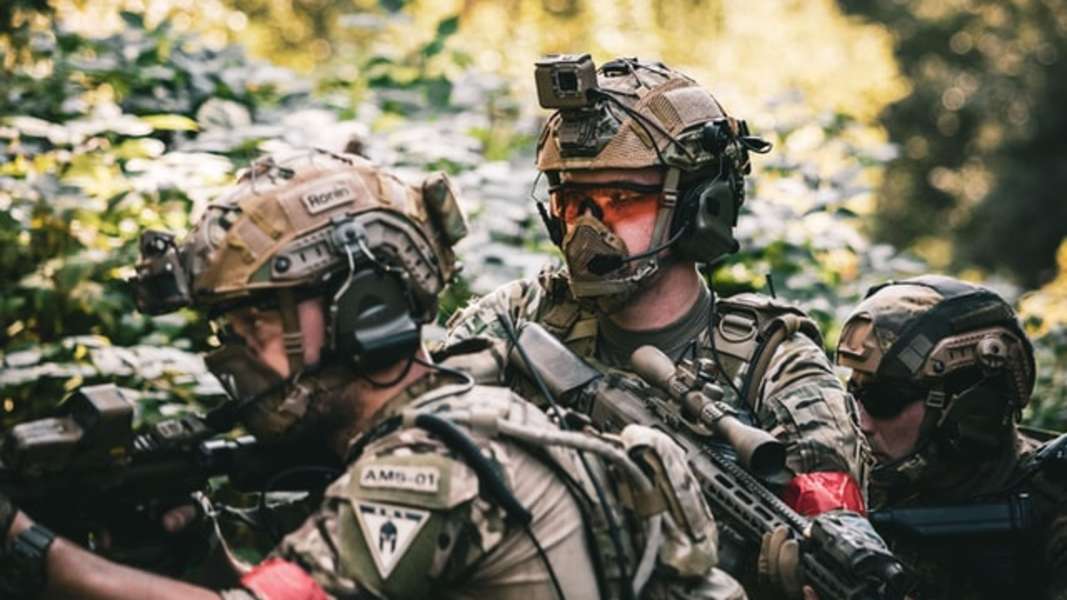What is an army aptitude test?
The army aptitude test is actually a series of different psychometric tests, designed to assess everything from your numerical and logical reasoning, to your ability to remember key instructions and follow rules and processes.
The test is timed because being able to work quickly and calmly under pressure is one of the most important skills you can bring to the army. As well as this, you’ll need to show an ability to think logically, solve problems, analyse complex information and think critically.
Once you’ve completed all the tests you’ll be given your final score, which will be used to determine whether you move onto the next stage of the process.
The format of the army aptitude test
You will sit the army aptitude test on a computer and at your nearest Army Careers Centre.
All of the answers to the questions you’ll be asked are multiple-choice. The test is designed to be challenging to ensure only the best people make it through the recruitment process, so practice and preparation beforehand is important.
Before you start, you’ll watch a short presentation on the test format and get to try out a few practice questions to ensure you feel comfortable with the equipment and process.
Once the test is finished, you’ll be given your overall score, otherwise known as your GTI (General Trainability Index).
If you passed, you’ll also be given a list of roles that your results indicate you would be suited to. The better you score, the more possibilities open up – which is why practising is so important. You can read more here about the Army’s tests and how to practice them](https://www.militaryaptitudetests.org/employers/british-army/).
Army cognitive test
The army cognitive test includes five different sub-sections (you can read about each one in more detail below):
- Error detection
- Orientation
- Number fluency
- Word rules
- Deductive reasoning
Overall, each section is putting your speed, accuracy and ability to think logically to the test.
The best way to prepare is simply to practice as many cognitive ability questions and tests as you can.
Error detection test
In the error detection test you’re being assessed on your ability to quickly and accurately process information, to prove you’re comfortable spotting important mistakes.
The questions usually take the form of a series of different symbol combinations. Your job is to try and memorise as many as you can, so you’re able to answer questions on what you’ve just seen.
This is exactly the kind of test that really does require practice, since it doesn’t come naturally to everyone.
To give yourself the best possible chance of success on the day, read more about how to prepare for error detection tests.
Orientation test
The orientation section is all about showing the strength of your logic and spatial awareness.
The questions will give you rules to memorise, before asking you to solve problems with those rules in mind. As a result, the questions are designed to test your memory, mental agility and ability to think logically under pressure.
As with every section of the test, practice is important if you want to give yourself the best possible chance of success. Spatial reasoning questions will help you get to grips with a similar type of challenge and will ensure your speed and accuracy improves.
Number fluency test
Part memory test and part maths test, the number fluency section is crucial to perform well in, as numerical ability is deemed as essential for any army recruit.
The questions will ask you to look at a numerical rule, memorise it, then apply it to the question to find the correct answer.
You can improve your aptitude for the number fluency test by practising numerical reasoning questions – they’ll help you familiarise yourself with the question format, strengthen your mathematical ability and boost your speed.
Word rules test
You’ll be given different sets of three words and asked to find the rule that governs those words in order to select the correct answer.
The point of this part of the test is for the examiner to get a closer look at your general literacy and comprehension skills,and how you can apply these skills under tight time pressure.
Brushing up on your verbal reasoning skills is a great way to prepare yourself for the word rules test at home.
Deductive reasoning test
Deductive reasoning tests measure your ability to take information, process it and make logical deductions based on what you’ve read — a vital skill for all army recruits.
This test doesn’t require any specific prior knowledge, but the slightly abstract nature of the questions can confuse people. As such, it’s vital you don’t encounter it for the first time when taking your army aptitude test.









